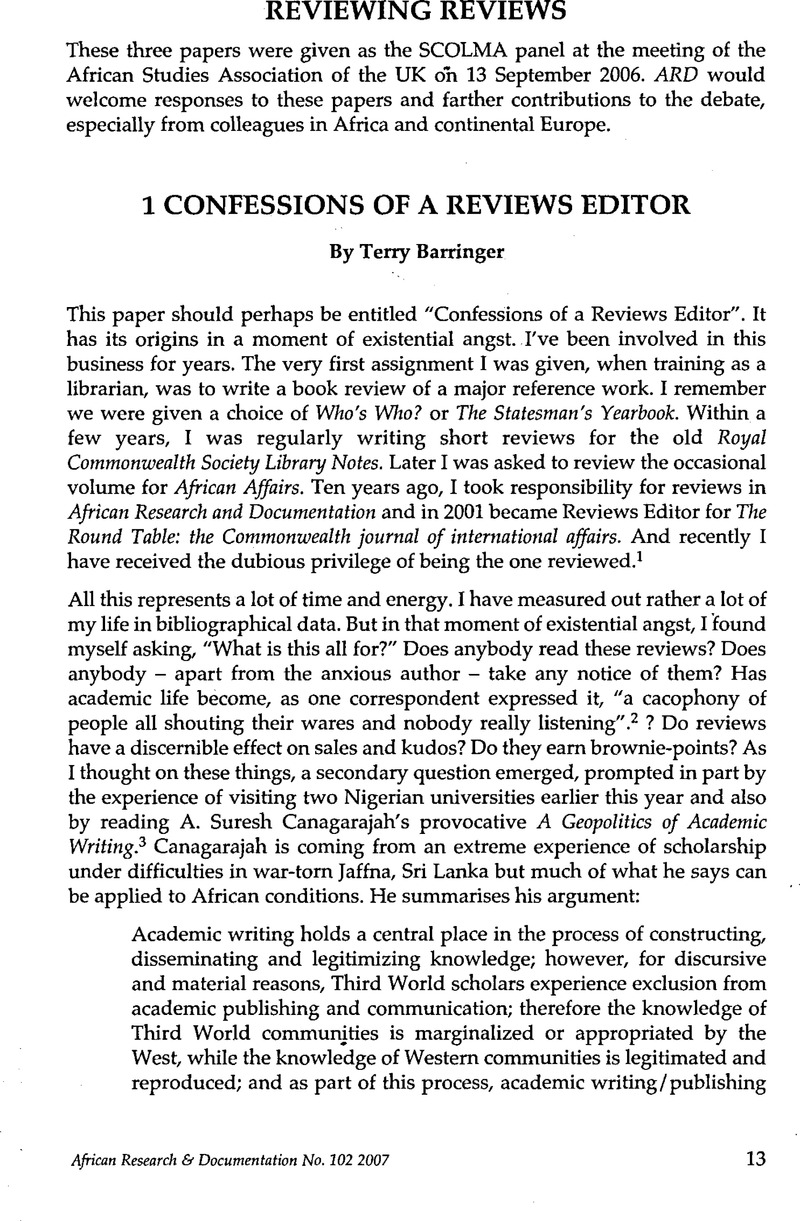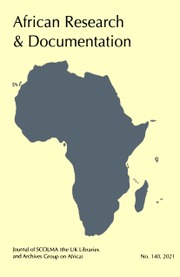No CrossRef data available.
Article contents
I Confessions of a Reviews Editor
Published online by Cambridge University Press: 25 April 2022
Abstract
An abstract is not available for this content so a preview has been provided. Please use the Get access link above for information on how to access this content.

- Type
- Articles
- Information
- Copyright
- Copyright © International African Institute 2007
References
Kirkman, Bill's review of three volumes of Occasional Papers of the OSPA Research Project at the Institute of Commonwealth Studies in Round Table 384, 2006, pp. 315-318.Google Scholar
Ged Martin, personal communication.Google Scholar
Canarajah, A.Suresh, A Geopolitics of Academic Writing, University of Pittsburgh Press, 2002, p. 6CrossRefGoogle Scholar
In addition to articles cited individually below, this literature includes Cannadine, David, On Reviewing and Being Reviewed, History Today, 49(3), 1999, pp.30-33.Google Scholar
Tobin, Ronald W. , The Commensuality of book reviewing, Journal of Scholarly Publishing, pp. 47-51.Google Scholar
Juris, Juris and others, Investigating the value of scholarly book reviews for the work of academic reference librarians. Journal of Academic Librarianship, 32(5), 2006, pp. 452-466. Unfortunately this appeared too late to be used in the preparation of this paper. Its examples are drawn from the fields of popular music and Southern (USA) literature but its conclusions are of general application. Dilevko and his colleagues argue that “scholarly book reviews are an important part of the scholarly communication process” and should be required reading for librarians not just for the purposes of collection building but also as a source of “a significant amount of intellectual capital” that enables them better to meet the needs and expectations of faculty and scholars.Google Scholar
Quoted in Farham, Adrian, Book reviews as a selection tool for librarians: comments from a psychologist, Collection Management 8(1), 1986, p. 3 Farnham considers that “Using book reviews as a selection tool is a dangerous business”.Google Scholar
David, Henige, Reviewing reviewing. Journal of Scholarly Publishing, 33(1), 2002, 23-25.Google Scholar
Personal communicationGoogle Scholar
Personal communication, Eugenia HerbertGoogle Scholar
Lynette, Felber , The Book review: scholarly and editorial responsibility. Journal of Scholarly Publishing 33(2), 2002.Google Scholar
Stephen Ellis, personal communicationGoogle Scholar
Barringer, Terry, Administering Empire: an annotated checklist of personal memoirs and related studies, Institute of Commonwealth Studies, University of London, 2004.Google Scholar
Barringer, Terry, Africa Bibliography 2005, Edinburgh University Press for International African Institute, forthcomingCrossRefGoogle Scholar




